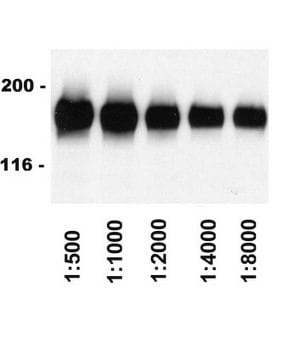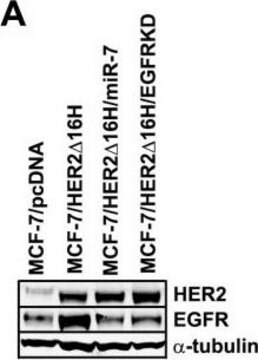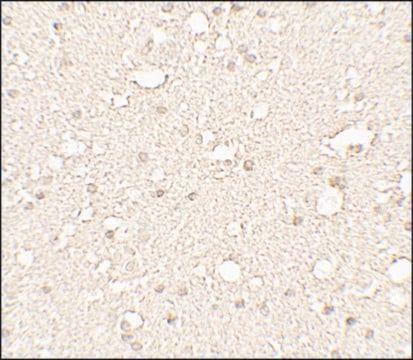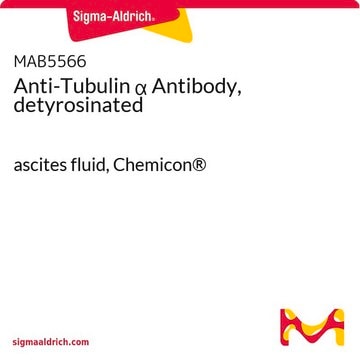ABT170
Anti-alpha Tubulin Antibody, nontyrosinated
serum, from rabbit
Synonym(s):
Tubulin alpha-1A chain, Alpha-tubulin 3, Tubulin B-alpha-1, Tubulin alpha-3 chain
About This Item
Recommended Products
biological source
rabbit
Quality Level
antibody form
serum
antibody product type
primary antibodies
clone
polyclonal
species reactivity
mouse, porcine
species reactivity (predicted by homology)
rat (based on 100% sequence homology), human (based on 100% sequence homology)
technique(s)
ELISA: suitable
immunocytochemistry: suitable
western blot: suitable
NCBI accession no.
UniProt accession no.
shipped in
wet ice
target post-translational modification
unmodified
Gene Information
human ... TUBA1A(7846)
General description
Specificity
Immunogen
Application
Cell Structure
Cytoskeleton
ELISA Analysis: A representative lot from an independent laboratory specifically detected nontyrosinated alpha Tubulin, and not nontyrosinated alpha Tubulin in an indirect ELISA and in a competitive ELISA (Gundersen, G. G., et al. (1984). Cell. 38(3):779-89.).
Immunocytochemistry Analysis: A representative lot from an independent laboratory specifically detected nontyrosinated alpha Tubulin, and not nontyrosinated alpha Tubulin in TC-7 cells in interphase (Gundersen, G. G., et al. (1984). Cell. 38(3):779-89.).
Quality
Western Blotting Analysis: A 1:2,000 dilution of this antibody detected alpha Tubulin, nontyrosinated in 10 µg of PCA treated NIH/3T3 cell lysate and demonstrated a loss of signal in untreated NIH/3T3 cell lysate.
Target description
Linkage
Physical form
Storage and Stability
Handling Recommendations: Upon receipt and prior to removing the cap, centrifuge the vial and gently mix the solution. Aliquot into microcentrifuge tubes and store at -20°C. Avoid repeated freeze/thaw cycles, which may damage IgG and affect product performance.
Disclaimer
Not finding the right product?
Try our Product Selector Tool.
Storage Class Code
10 - Combustible liquids
WGK
WGK 1
Certificates of Analysis (COA)
Search for Certificates of Analysis (COA) by entering the products Lot/Batch Number. Lot and Batch Numbers can be found on a product’s label following the words ‘Lot’ or ‘Batch’.
Already Own This Product?
Find documentation for the products that you have recently purchased in the Document Library.
Our team of scientists has experience in all areas of research including Life Science, Material Science, Chemical Synthesis, Chromatography, Analytical and many others.
Contact Technical Service








